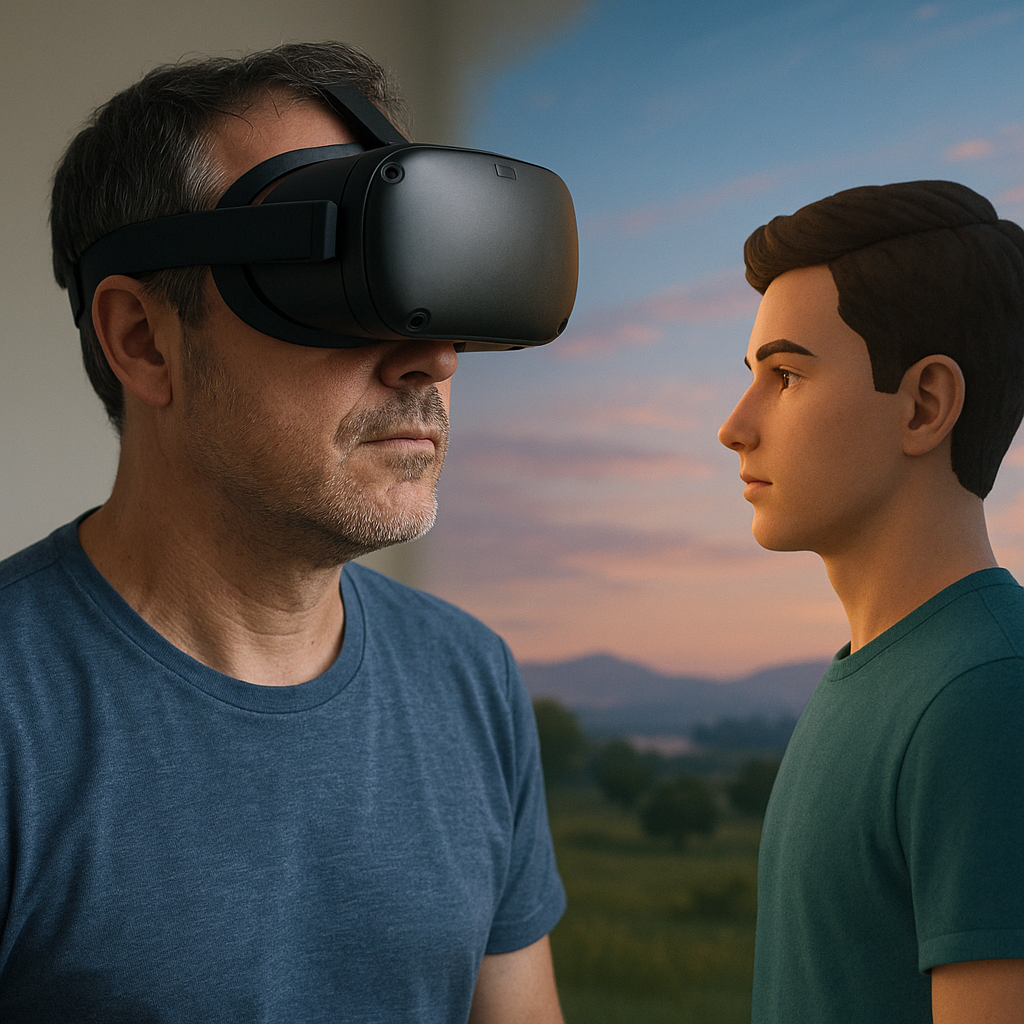Avatars, identity, and the metaverse: Are we becoming our digital selves
The study draws on phenomenology and digital ontology to examine the dual existence of users: simultaneously "here" in the physical world and "there" in cyberspace. This leads to an intriguing paradox: while we do not physically coincide with our avatars, we act through them, shaping and being shaped by the digital environment.

A new study critically analyses the philosophical and ethical foundations of human embodiment in the metaverse. Published in AI & Society, the study titled “Bodies in the Metaverse: Is there ‘someone’ out there?”, delves into how emerging technologies such as VR, AR, and AI are reshaping our experiences, identities, and ontologies in immersive digital environments.
The authors question the ontological status of avatars, the phenomenology of virtual presence, and the formation of identity in digital ecosystems. Through anthropological and philosophical inquiry, the study contends that the metaverse is not merely a new medium but a transformative digital habitat that demands a redefinition of corporeality, selfhood, and agency.
What is the metaverse and why does it matter?
The study defines what the metaverse is: an immersive, multifaceted environment enabled by cutting-edge technologies such as virtual reality, augmented reality, and artificial intelligence. Rather than serving as a simple extension of the internet, the metaverse is described as an “Umwelt” - a self-regulating environment populated by interactive entities, both human and synthetic.
The researchers explain how the convergence of interoceptive sensory technologies, real-time AI rendering, haptics, and blockchain-fueled economies makes the metaverse more than a digital playground. It becomes a legitimate space for habitation, experience, and interaction. The experience of “presence” in these environments hinges on how convincingly the synthetic world can simulate sensory and motor feedback, blurring the boundary between perceived and actual reality.
The implications are enormous. Not only does the metaverse allow new forms of entertainment, education, and social interaction, it also offers new therapeutic potentials. From stress management to phobia treatment, virtual experiences can alter cognition and perception as powerfully as real-world stimuli, sometimes even more so.
However, this transformation isn’t without its perils. The study highlights the risks of addiction, misinformation, social inequality, and data exploitation. The authors caution that while the metaverse opens new frontiers, it also raises critical ethical and governance challenges.
What does it mean to be “present” in the metaverse?
The study draws on phenomenology and digital ontology to examine the dual existence of users: simultaneously "here" in the physical world and "there" in cyberspace. This leads to an intriguing paradox: while we do not physically coincide with our avatars, we act through them, shaping and being shaped by the digital environment.
This bifurcation of selfhood gives rise to a new type of perception, one that is neither internal nor external, but “outside-in” - a hybrid existence mediated through technology. The avatar becomes a vital node in this exchange, allowing the user to re-embody themselves in an alternate realm. This process is described as a shift from dematerialization to reembodiment.
The research uses concepts such as “prosthetic agency” and “infosphere” to explain how digital presence is achieved. Our bodies, as perceived in the metaverse, respond to predicted sensory cues just like they would in the physical world. Experiments like the “rubber hand illusion” serve as empirical anchors, showing how easily the brain can be persuaded to reassign its sense of bodily ownership. These mechanisms are what make the metaverse so immersive, and potentially so manipulative.
The authors emphasize that avatars act not only as interfaces but as transformative vessels. Their impact reverberates back into the physical self through feedback mechanisms, cognitive restructuring, and identity shifts. In short, to dwell in the metaverse is to exist in a dual mode - an embodied identity living across dimensions.
How do avatars shape who we are becoming?
The paper analyses how digital environments influence identity formation. Through continuous interaction, customization, and narrative construction, users are not merely participating in digital culture, they are becoming it. The study explores this through the “Proteus effect,” a phenomenon where the attributes of an avatar, height, attractiveness, dress, alter users’ behavior in both virtual and physical contexts.
This effect extends to psychological, social, and moral realms. Users with idealized avatars behave more confidently, negotiate more aggressively, and self-disclose more frequently. The metaverse becomes a space of identity experimentation, generating new forms of “digital selves” and even “extended selves” that integrate social media profiles, digital possessions, and avatars as key components of personal identity.
The researchers identify a sequential process underpinning this transformation: dematerialization (the detachment from the physical body), reembodiment (constructing a virtual self), sharing (social interactions), co-construction (narrative selfhood), and distributed memory (continuity across platforms). Of these, the first two are particularly significant in shaping how we understand “being” in a digitized world.
The avatar, then, is not a passive reflection but an active agent. It sits between the mirror image (which mimics but does not act) and the “perfect double” (which acts independently). The avatar does what the user commands but feeds back influence through perception and self-concept, making it a powerful mediator of identity.
In a nutshell, the study asserts that the metaverse is not fiction - it is a lived, experiential reality that demands philosophical reckoning. The authors argue that ethical discussions about digital environments must be grounded in an ontology of presence. Without such a framework, questions of accountability, identity theft, data protection, and even bioethical concerns cannot be addressed with the rigor they deserve.
- FIRST PUBLISHED IN:
- Devdiscourse










